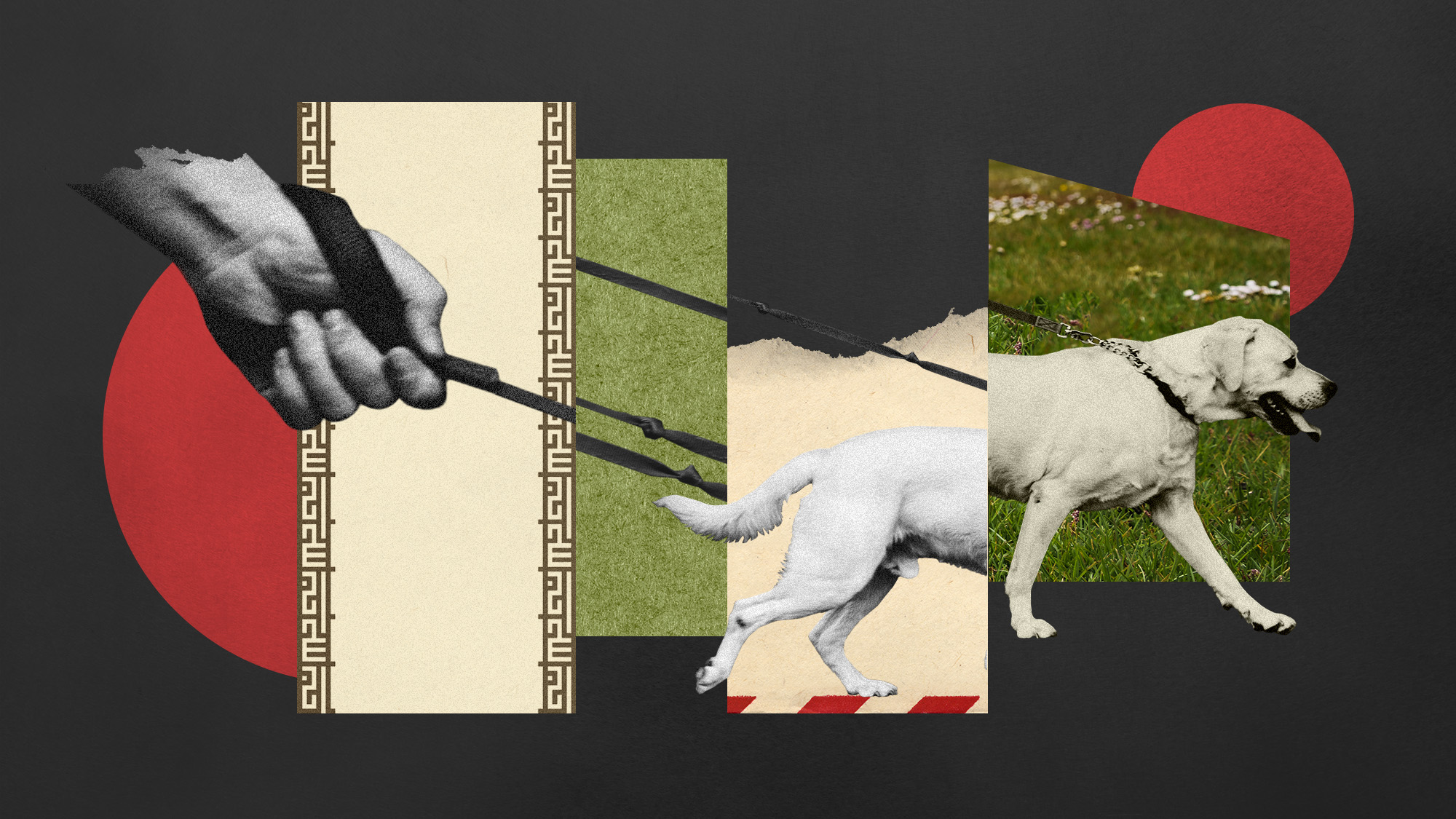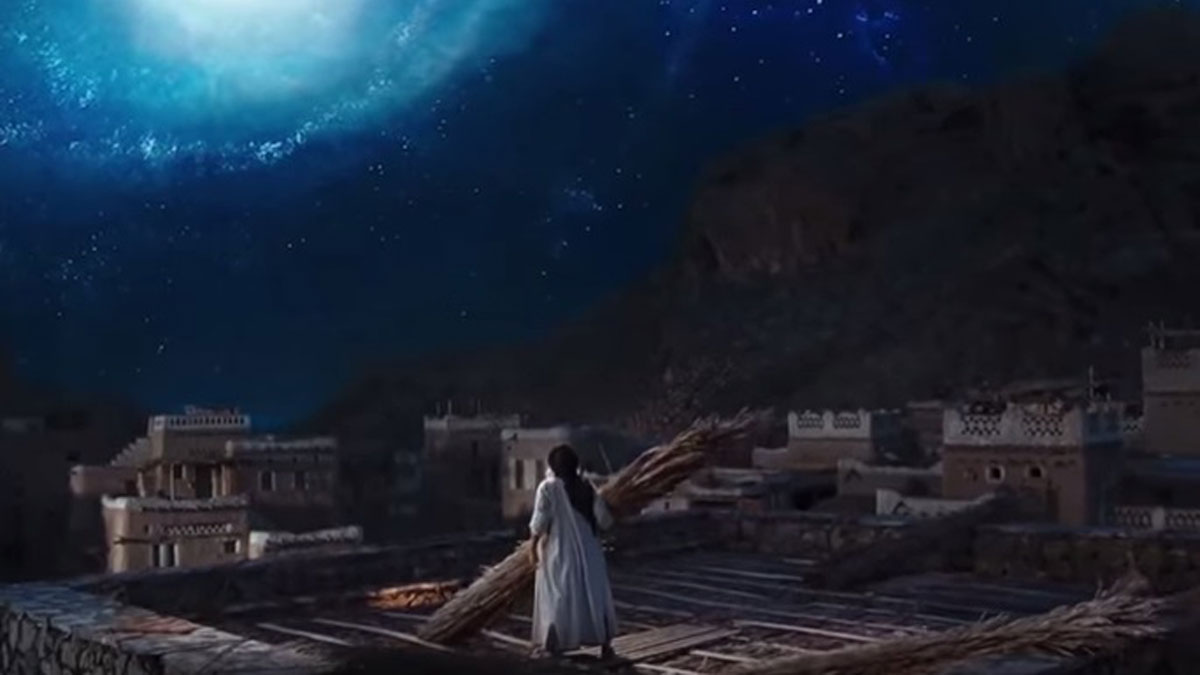Why The Satanic Verses is still controversial
The attack on Salman Rushdie in New York came 34 years after the publication of his infamous novel

A free daily email with the biggest news stories of the day – and the best features from TheWeek.com
You are now subscribed
Your newsletter sign-up was successful
Salman Rushdie was stabbed in the neck at a literary event in New York state earlier today. His condition has not been made public, but the Governor of New York said the author is alive and was taken for surgery soon after arriving in hospital.
Although the motive for the attack is not yet known, Rushdie has been a marked man since the publication of his 1988 novel, The Satanic Verses. His depiction of the prophet Mohammed “made him the target of death threats from Iran”, said the Financial Times. The following year, the country’s supreme leader, Ayatollah Khomeini “issued a fatwa ordering Muslims to kill Rushdie”.
While Khomeini died just a few months after pronouncing the death sentence, Rushdie lived in hiding for a decade. In 2019, the current ruler of Iran, Ayatollah Ali Khamenei, said the fatwa remained “solid and irrevocable”.
The Week
Escape your echo chamber. Get the facts behind the news, plus analysis from multiple perspectives.

Sign up for The Week's Free Newsletters
From our morning news briefing to a weekly Good News Newsletter, get the best of The Week delivered directly to your inbox.
From our morning news briefing to a weekly Good News Newsletter, get the best of The Week delivered directly to your inbox.
Today’s attack began as Rushdie was about to deliver a lecture at the Chautauqua Institution in western New York state. “Hundreds of people in the audience gasped” as a man advanced onto the stage and stabbed the writer in the neck and torso, said CBS News. Rushdie “reportedly stood up and fell backwards as he tried to get away”, said the BBC.
A group of people from the audience rushed onto the stage to subdue the assailant, who was reportedly wearing a black mask. “Rushdie was on the ground for five minutes or so before being helped up and walked off the stage,” said the BBC. He was then taken to hospital by helicopter.
New York state police said a suspect was arrested at the scene.
The Chautauqua Institution is a “tranquil and rural” organisation which is “known for bringing together different religious faiths”, said the Financial Times.
A free daily email with the biggest news stories of the day – and the best features from TheWeek.com
This evening the Muslim Council of Britain condemned the attack. “Such violence is wrong and the perpetrator must be brought to justice,” it said in a tweet.
Why is the novel so controversial?
Upon publication, Muslim critics accused Rushdie of portraying Islam as a “deceitful, ignorant, and sexually deviant religion”, said HuffPost.
Many were outraged by a character called Mahound, who appears in dream sequences in the novel and was alleged to be “a thinly and perversely diguised representation of the Prophet Mohammed”, according to The New York Times’ Michoko Kakutani.
The name Mahound was used in medieval Christian plays to represent satanic figures, and some Muslims concluded that Rushdie was implying that Mohammed was a false prophet.
In his book, Rushdie also described Mecca as “Jahilia” – a term signifying the period of ignorance prior to the revelations received by Mohammed – and gave the names of the prophet’s wives to twelve prostitutes in a brothel.
“And most controversially, he invoked a discredited tradition in Islam, the so-called satanic verses, in which Satan inspired Mohammad to compromise with the people of Mecca and to allow them to continue to worship other deities in an attempt to lure them to Islam,” said HuffPost.
The resulting anger led to bookshop bombings, burnings and bans on the novel in much of the Islamic world. Ayatollah Khomeini, then the supreme leader of Iran, even issued a fatwa ordering Muslims to kill Rushdie – forcing the writer to go into hiding for almost a decade.
The controversy surrounding the novel also “sparked a culture war in Britain” between those who considered it blasphemous and wanted it banned, and those who considered artistic expression sacrosanct, said the i news site.
How is the row still relevant?
Three years ago, a documentary shed new light on the lasting effect of The Satanic Verses on Britain’s Muslim community. BBC Two’s The Satanic Verses: 30 Years On tracked journalist Mobeen Azhar as he explores the controversy surrounding the book, which sparked riots, assassinations and death threats.
The most important questions posed by Azhar in the documentary surround free or limited speech,
Rushdie and his supporters see free expression as an undeniable right. In a 2015 interview, the author argued: “It is possible to respect individuals, to protect them from intolerance, while being skeptical about their ideas, even criticising them ferociously.”
However, some critics still believe Rushdie abused his freedoms to denigrate Muslim beliefs.
Indeed, during filming of the new documentary, a man in Bradford snatched a copy of the novel from Azhar and tried to set it on fire – an incident that highlights the continuing relevance of the controversy, says the Bafta-winning filmmaker.
Azhar himself told news site Vice in 2019 that the row explained a “big part of our history, particularly when it comes to how immigrant communities and how Muslims are perceived in Britain”.
For others, the relevance is broader still. The unresolved debate about The Satanic Verses “poses complex and ever-pressing questions about free speech, and whether limits should be imposed upon it”, The Guardian said.
-
 Political cartoons for February 15
Political cartoons for February 15Cartoons Sunday's political cartoons include political ventriloquism, Europe in the middle, and more
-
 The broken water companies failing England and Wales
The broken water companies failing England and WalesExplainer With rising bills, deteriorating river health and a lack of investment, regulators face an uphill battle to stabilise the industry
-
 A thrilling foodie city in northern Japan
A thrilling foodie city in northern JapanThe Week Recommends The food scene here is ‘unspoilt’ and ‘fun’
-
 Why Iranian cities are banning dog walking
Why Iranian cities are banning dog walkingUnder The Radar Our four-legged friends are a 'contentious topic' in the Islamic Republic
-
 Fireman Sam episode pulled over 'Koran mistake'
Fireman Sam episode pulled over 'Koran mistake'Speed Read Production firm apologises after animated children's character is seen stepping on page from religious text
-
 Iranian blockbuster causes outrage in Saudi Arabia
Iranian blockbuster causes outrage in Saudi ArabiaSpeed Read 'Muhammad: the messenger of God' condemned by senior Saudi cleric as a defamation of Islam